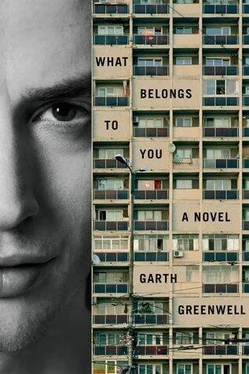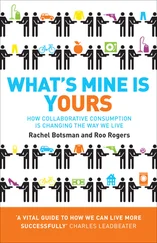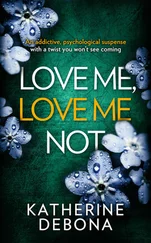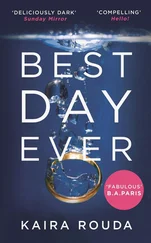I’m bored, he said, skuka mi e , it’s a long trip, I want to do something. His grandmother sighed. It’s not so long, she said, other children manage to sit and to be good. I’ll never sit, the boy cried, squaring his shoulders, and he repeated the word never, nikoga , separating each of the syllables, throwing them like little punches in the air. I laughed, I couldn’t help it, and the man across from me laughed too; even the grandmother smiled, it was too charming to resist. The boy looked surprised at our laughter, as if he had forgotten about us, and then he glanced at each of us in turn with his enormous smile, thrilled with the impression he had made. Only my mother was left out, and she reached urgently across to grip my arm, asking what he had said, wanting to know before the moment passed. And then she smiled too, looking first at the boy and then his grandmother, laying her hands in her lap and settling back against the bench in a peculiar way she had, as if it were all just too much for words. He’s a sweet boy, she said then, looking at the grandmother, who smiled back at her but shook her head, saying she was sorry, she didn’t speak any English. I translated what my mother had said, and the woman looked at me, a little surprised. You speak Bulgarian, she said, almost a question, and then, when I had wagged my head from side to side, Well, she said, he can be sweet and still be bad. But she was pleased, and she looked at my mother while I translated, smiling and nodding her head a little. There was a camaraderie among us now, a warmth that made us more than strangers, and the boy felt it too, I thought, so that his sense of his kingdom spread from the little seat, expanding to encompass the entire compartment. At several points during our ride, the man across from us had interrupted his reading to take a camera from the backpack beside him and step into the corridor, snapping photos through the large windows there. The boy had watched this with interest, and now, as the man took his camera out again, he went to stand before him, cocking his head a little. Do you want to see how it works, the man asked, tilting the camera so the boy could see the digital screen surrounded by switches and buttons, and the boy nodded, still shy, and then hopped up onto the bench beside him. Don’t bother him, the grandmother said, but the man shook his head at this, saying it was fine, he didn’t mind, and he and the boy examined the camera for a few minutes, scrolling through the photos, and then, with the grandmother’s blessing, they stepped together into the corridor, where the windows offered more expansive views.
He’s my daughter’s child, the woman said to us, I took him to the seaside for a week, all he did was run and play, I thought he would sleep on the train, he usually does. I shook my head in sympathy, saying that it was a long trip, it was hard for a child, and really he was being very good. Is this your mother, the woman asked then, and I said yes, saying too that it was her first time in Bulgaria, her first time anywhere outside of the States. Her first time in Europe and you brought her to Bulgaria, the woman said, oh, she must think it is terrible here. I paused to translate for my mother, who gasped and leaned forward, Oh no, she said, it’s a beautiful country, I’ve had a wonderful time. Maybe the sea is nice, the woman allowed, but Sofia — and she cut off her sentence, wrinkling her nose. But she is your mother, the woman said, anywhere she’s with you she will be happy. When she heard this, my mother reached over and laid her hand on my arm, saying that was true, that was certainly true, and I felt something twist in me, the motion of some unthinking thing when it is gripped too hard, and I had to resist the urge to pull away. But you live in Bulgaria, the woman asked, what do you do here, and her face brightened with interest when I said I was a teacher, when I named the famous school where I work. Bravo , she said, that is the best place, and then she said that her grandchild had started learning English that year, that he had learned songs and already knew his numbers. He was a smart boy, she said, when he wasn’t being bad. This last was meant for the boy himself, who had just come back in, he and the man, the boy happy with the camera. He held it to his face (the man kept his own hand on it too), and looked at each of us, using his hand on the lens to twist it first one way and then the other, making us large and small by turns. This man is a teacher, the woman told the child, he teaches English, and she encouraged him to practice his English with me, to show me what he had learned; but the boy turned shy, still smiling but moving his head up and down, a decided no. Come on, I said in Bulgarian, just say a little bit, what words do you know, but he still refused, suddenly demure; he climbed back into his seat and laid his head on the woman’s arm. He’s shy, the woman said, but really he knows a lot. She told us about the teacher he had had that year at school, a young man, new and full of energy, who played games with the kids, so that they learned without knowing they had been taught. They even put on a show at the end of the year, she said, it was wonderful, all of the students had learned so much. The boy lifted himself up again then, suddenly unshy; I want to say an English word, he said. He wiggled himself to the edge of his seat, the toes of his shoes just touching the floor, and looked around at each of us in turn, as if to make sure we were all watching. Then he threw both of his hands in the air and shouted Kung Fu! falling back against the seat as he held out the second syllable, turning it into a howl. The woman clicked her tongue, You know better words than that, she said, but the rest of us were laughing again, and again the boy was pleased.
The woman pulled out more food for him then, and the rest of us returned to our reading, though I was hardly reading at all, I was watching the boy with a fascination I didn’t understand. There was something electric about him, as he sat chewing his sandwich, looking out the window, a charm beyond mere loveliness. He was still for a while, lulled by food and by the heat, which had grown more intense as the afternoon wore on, but soon he was restless again, climbing up on the bench, then onto the narrow ledge of the armrest, grabbing with both of his hands one of the metal bars of the luggage rack. Get down, his grandmother said sharply, I’ve already told you, and the boy dropped his hands, not in surrender but to have them free for bargaining. But you don’t know what I’m going to do, he protested, his voice full of the injustice of it, I haven’t even tried yet. Just wait, just let me try, then see if it’s bad, and he made a particular gesture with his hands, curling his fingers slightly and holding them both palm up before him, a pleading gesture, and all at once and with a physical force I understood the source of my fascination with the boy, the reason I had been unable to look away. It was one of Mitko’s gestures, I realized, all of the boy’s gestures were ones I had seen Mitko use; the boy himself, his long limbs, his slenderness, the peculiar cast of his skin, might have been a small copy of the man, so that I felt I was watching Mitko as a boy, before he had become what he was now. Where had they learned it, I wondered, this repertoire of gestures that made a way of being a man, the talent for friendliness and charm that had always astonished me, with its certainty both of welcome and of the right to whatever it could grasp.
The boy did pull himself up then, showing off his strength, and as his legs flailed in the air the woman grabbed one of them and pulled, which made the boy giggle at first, thinking it was a game. He dropped back down to the little ledge, leaning back against the wall, still smiling, and again brought his hands together in front of him, not pleading now but as if to say see, it was nothing so terrible, how silly you were to worry. But this time the woman snatched one of his hands and yanked it hard, pulling him forcibly into the seat. I said to get down, she said, and it was clear now that she was angry, really angry for the first time in the trip, and it was as much in response to this anger as to any pain she had caused, I thought, that the boy began to weep. He was shocked at first, wide-eyed as if unbelieving that his luck could have run out, and then, though I could see he tried to resist, to act muzhki , the tears streamed down. The boy kept wiping them away, using his whole palm, but there were always more, he was outsized in grief as in all other feeling. His grandmother refused to look at him, and I thought, as I had before, how difficult it must be to parent, to divine the discipline or patience by which to make the good seeds grow while plucking out the bad, though maybe there was no real telling them apart. What was charming in the child would not be charming in the man, I thought, remembering Mitko and his bewilderment at my exasperation, his disbelief at every refusal. He had been a child just like this. I glanced at my mother, who looked stricken as she watched the boy weep, her own eyes welling with tears, and I wondered, as I had so often, whether she was the source of my own discontent, whether there was something she could have done that would have made me other than I am. I considered this as I watched her watching the boy, even though I knew it was unfair, that I was lucky to be loved as she loved me.
Читать дальше












